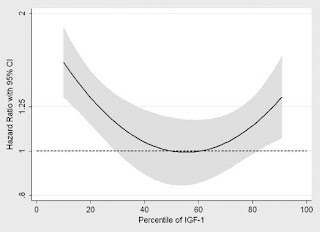It's worth noting that from the OPs supplementation list: rutin, blueberry extract, ginsing extract, curcumin, milk thistle, EGCG, quercetin, alpha-lipoic acid, cinnamon, grape seed extract, and fisetin are all known Nrf2 inducers, and indeed perhaps owe the bulk of their effects to induction of the Keap1-Nrf2-ARE mediated endogenous antioxidant response.
There's a couple of commercially available Nrf2 inducing stacks (Protandim and Nuley NRF-2 Optimizer), but as constituitive Nrf2 upregulation is a pillar of my own dietary/supplementation anti-aging approach, I suspect a more rational selection might streamline the supplementation.
From a couple of recent papers (
1,
2), andrographolide from the Asian herb
Andrographis paniculata appears the most potent naturally occurring Nrf2 inducer, and
this current review of clinical studies will confirm the range of protective effects, many shared with other Nrf2 inducers. No other herbal inducers come close, though as this
high-throughput screen notes, gedunin (from neem), nordihydroguaiaretic acid (NDGA, from creosote), and fisetin (from strawberries & Japanese wax tree) have some intriguing, drug-like kinetics. Though NDGA is one of rather few compounds
known to increase mouse lifespan, unfortunately creosote is a hepatotoxin so is out of consideration for me.
Among food phytochemical Nrf2 inducers, carnosic acid (from rosemary & sage), curcumin (from turmeric), and sulforaphane (from broccoli, esp sprouts) appear the most potent. Supercritical CO2 rosemary extracts standardized to diterpenes are fairly cheap, low in flavor, and could be added to salad oil; turmeric extracts are fairly inexpensive, but need piperene (from black pepper) for reasonable bioavailability. I grow broccoli sprouts and buy high glucoraphanin cultivar broccoli for my daily enormosalad.
As I rationalize and simplify my supplementation (using guides like this thread), I'm presently leaning towards a Andrographis extract + curcumin extract/piperine as my Nrf2 inducing pill supplements, with high daily dietary sulforaphane + rosemary extract in the context of a high flavonoid diet. I'm tempted to add fisetin, but its a somewhat expensive supplement by comparison.
These would be by no means my only supplements. Eg, benfotiamine + carnosine would be my anti-glycation stack; B12 + D3 + algal EPA/DHA + creatine + taurine my vegan nutritional support, etc.
Edited by Darryl, 03 September 2013 - 11:06 PM.




























































